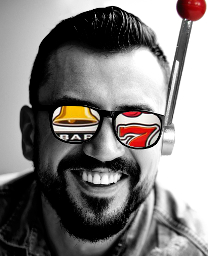Goggles and sport watches to spot addiction
 Researchers are using virtual-reality gear to find out where addiction comes from.
Researchers are using virtual-reality gear to find out where addiction comes from.
One of the first projects at Melbourne’s new Institute for Cognitive and Clinical Neurosciences will study the source of addiction in the brain.
The research is based on the premise that regardless of the addiction – be it gambling, alcohol, drugs or OCD – the same area of the brain is affected.
The team hopes to develop new tools to help addicts of all kinds through its unique study of the neural and psychological causes of a person’s reduced ability to self-control.
The research team is using Oculus Thrift - a cheap and readily-available head-mounted virtual reality display - to teach people with gambling addictions to learn the cues that can trigger a gambling spree.
“We need to learn what happens to people, and their brains, when they are in a gambling environment,” research leader Professor Murat Yucel said.
“There’s no point in testing gamblers in a lab, we need to see what happens when they are in a casino or club.”
Australians spend over $19 billion a year on gambling, most of it on pokies.
One particular trigger, known as the “near miss” is where poker machines display, for instance, two of the same symbols on one line with that same symbol on the line above – ie, a “near miss”.
The researchers believe that these “near misses” trigger the same neural responses as winning.
According to Professor Yucel, it is this feeling of “almost winning” that keeps the gambler at the poker machine longer.
Using Oculus Thrift, the researchers will put volunteers (all of which are gamblers) into a virtual casino.
The aim is to measure the person’s responses and decision making via markers such as heart rate and respiration.
These are then displayed on the screen of the Ocular Thrift to the trial participant so that they can learn the triggers for a gambling binge, according to Professor Yucel.
“We are effectively trying to reverse engineer the process by which gamblers have and keep their addiction by training their brains to override this process,” he said.
The research team are also testing monitors such as the commercially available Fitbit’s to make people with gambling addictions and OCD to be aware of physiological changes that accompany their addictive behaviour.
“By exposing people to the stressors that trigger their addictive behaviour, and teaching them about how to pick up the queues that their brain is putting out before that addictive behaviour starts, we hope to teach people how to limit these behaviours,” he said.








 Print
Print